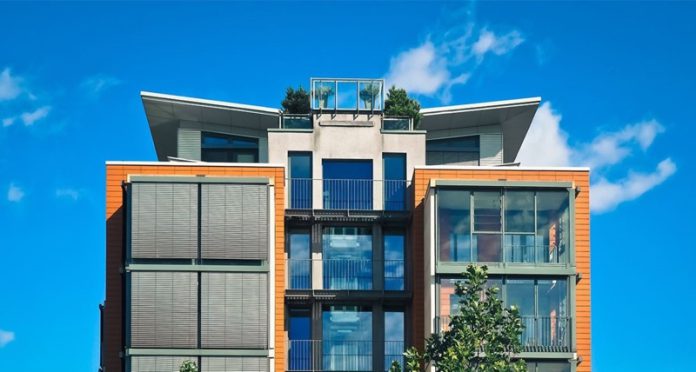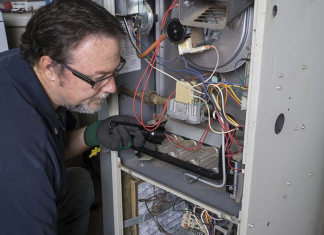What Experts Say About Townhouses Vs Condo Living
What is a Condo townhouse?
A condo or a condominium is a single structure or a group of buildings with individual apartments owned by different people. Condos, like apartments, can range in size or design from single-family houses to high-rises, although they frequently have shared walls with other units. Unlike flats, residents own and care for the insides of their homes. They do not, however, own the land on which the structure is located. Commonly, a condominium corporation owns the outside, the grass, and the communal areas. The homeowners association (HOA) is responsible for maintaining these areas. All condo owners are part of this organization, which charges fees for routine upkeep and significant repairs.
A townhouse is a style of architecture sometimes referred to as a townhome. It’sIt’s a multi-level house with walls on both sides. These walls may be shared with other places. If you have your own townhouse, you also own the house’s exterior and the land you built it on. You, therefore, have more freedom and greater responsibility over how you use your property.
You can find condos and townhomes in cities, suburbs, and rural settings, and both may contain a single story or several stories. The most significant difference between condos and townhouses is in the ownership and fees. What you own and how much you pay for it forms the basis of the townhouse vs condo debate. They are frequently decisive considerations in choosing the one best for you.
Ownership
If you decide to buy a condo with the help of a real estate company like Broadhurst Real Estate, you will jointly own the building with the other owner-tenants and privately own your specific unit. This joint ownership extends beyond the physical construction of the building. It also encompasses the airspace, gardens, and shared spaces like the gym and pool.
Ownership of a townhouse is comparable to that of a detached single-family house. The only distinction is that the building may share some walls with another building and the ground it stands on belongs to you individually.
Homeowners’ association
When buying a condo or townhouse, you usually make monthly payments to contribute to an HOA. But you may ask but do townhouses have condo fees? Whether in a condo or townhouse, all tenants are in charge of the HOA, and you may join if you like. The HOA takes care of the regular upkeep of the communal areas. They also oversee the structure, the property and the common interior areas of a condo.
On the other hand, in a townhouse complex, the HOA is in charge of managing the common spaces. It usually includes the exteriors of the buildings and general grounds and roofs.
The HOA also develops regulations for all renters and manages property upkeep. These may include house rentals guidelines and what you can do with your land. It also includes asking about the HOA regulations and costs when comparing townhouses vs condos. They might differ significantly between properties.
Cost
Buying a condo or a townhouse is often cheaper than owning a single-family home, even with monthly HOA dues. Condos and townhouses are excellent options for first-time homeowners or anyone on a budget.
Since you aren’t investing in any land, condos are often less expensive to acquire than townhouses. But because the spaces are more jointly owned, the HOA dues of a condo tend to be higher.
There are other expenses to think about on this journey. This, however, depends on the property you are buying and where it is located. There are different charges for property taxes, house insurance, and home inspections. Mortgage interest rates are another factor to consider; these are often higher for condos.
Pros of Condos
Living in a condo has some advantages, and they include:
- More communal living: If you live in a condo, you’re likely to run into your neighbours frequently because you share almost the same things. Like a gym, trash can, parking space, mail room, and other common areas. You’llYou’ll have many opportunities to meet people at the various community activities that some HOA even host.
- Fewer house repairs: You’llYou’ll need to care for the insides of your condo. But when it comes to maintaining the outside, trimming the lawn or sanitizing the swimming pool, the HOA employs individuals for that.
Cons of Condos
- Decreased Privacy: The tight quarters of a condo may not appeal to someone who is reserved, especially since you have many neighbours. Here’sHere’s a tip: during your walk-through, pay attention to what you hear and inquire about the thickness of the floors and the walls. After doing that, you’ll better understand how soundproof the walls and flooring are.
- Less room: The inside of your condo will probably be smaller than a townhouse of comparable price, and you won’t have any private outdoor spaces. Therefore, you might need to work with the HOA to secure a common area. That is, if, for instance, you want to host a barbecue with only your pals and family, they could charge you a price.
Pros of Townhouse
- More privacy: Do you want to live in your own home instead of next door to Mr Jones? You’llYou’ll probably choose a townhouse if you’re seeking a residence that feels more like a home and less like an apartment.
- More room: Townhouses often feature larger rooms than condominiums and frequently include yards. So you can enjoy the outdoors and give your children and pets more space to play. So, a townhouse is a terrific choice if you feel you need a large area.
- Fewer interactions with your HOA: Homeowners associations will still be highly active in townhouse life, don’t be mistaken. But not the same as in condo communities. So, there could be fewer restrictions and lower costs.
Cons of Townhouses
- Less connection to other homeowners: It may be simpler to isolate yourself in a townhouse. However, you might need to make more effort to attend neighbourhood gatherings or get to know your neighbours. If not, you could experience a sense of alienation from your neighbourhood.
- More maintenance on the house: More room may equal more issues, and you’ll have to find solutions. You can ask whether the HOA has a list of recommended plumbers or contractors. This is if you’re not ready to manage the house care yourself.
- An HOA is still in place: Compared to a condo, you have fewer interactions with your HOA, and they won’t have much influence over the improvements you make within your house. You’reYou’re not entirely off the hook, though. They’ll be interested in what you’re doing outside.















